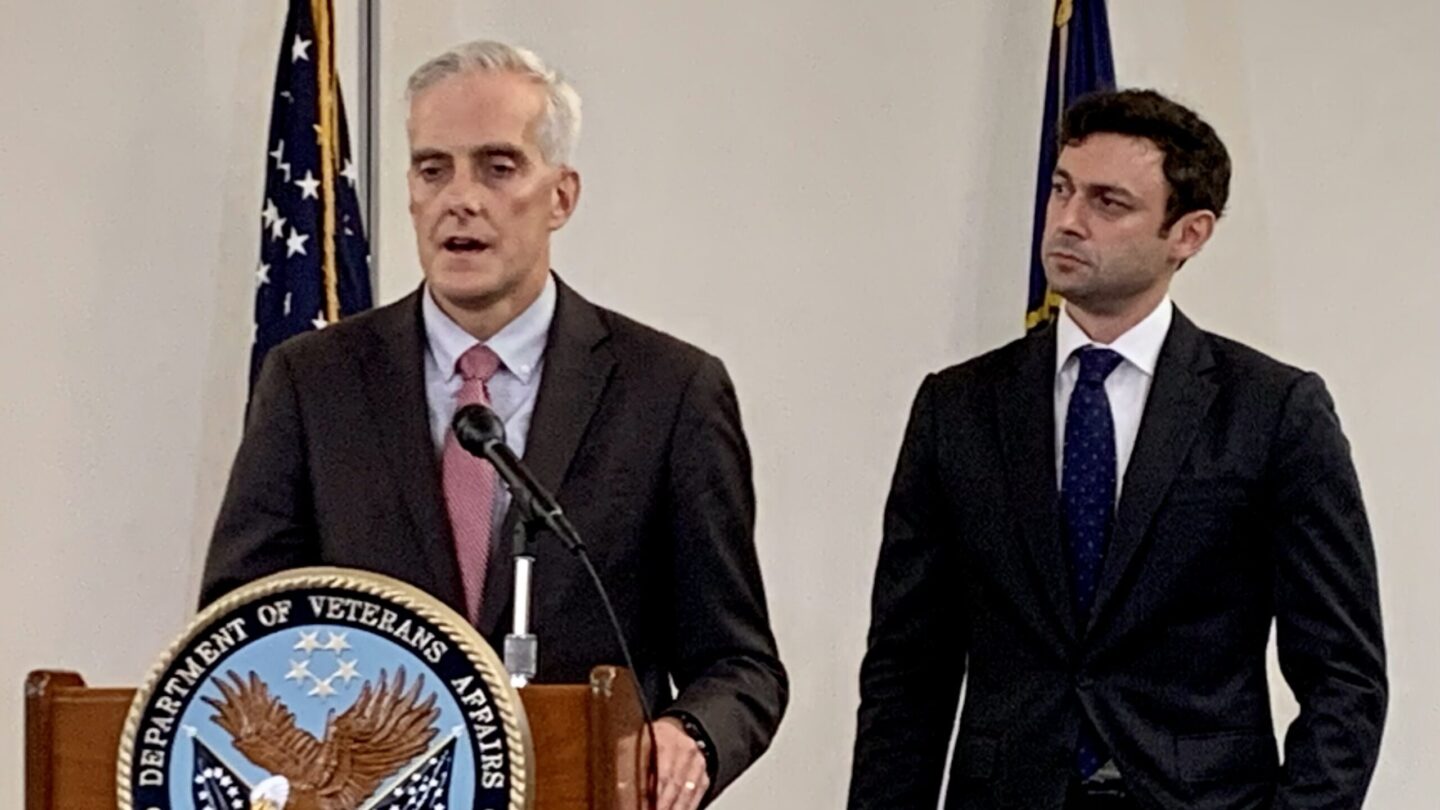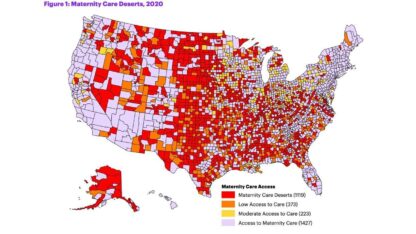Advocates are urging Georgia military veterans exposed to burn pits and other toxic chemicals to sign up for expanded VA health and disability benefits made available through the $280 billion PACT Act enacted by President Joe Biden this summer.
On Wednesday, Democratic Sen. Jon Ossoff toured the Atlanta VA Medical Center with Veterans Affairs Secretary Denis McDonough, who also made a stop at The Carter Center earlier in the day.
McDonough said the response to the PACT Act has been strong nationally since the president signed the bipartisan legislation in August.
The VA reports veterans have filed around 70,000 claims under the new law as of two weeks ago.
“Claims this year to date, since the president’s signing, are up 21%, indicating the strength of interest in this proposal,” McDonough said.
According to the Georgia Department of Veterans Service, the PACT Act could be life-changing for almost 300,000 veterans in the state who were exposed to airborne toxic chemicals and burn pits during their active service. Most of the veterans affected served in Iraq, Afghanistan and the Middle East, where the military burned trash and hazardous waste in massive open-air burn pits for years.
“Especially those veterans who served in that big expanse of geography from Somalia in the southwest to Uzbekistan in the northeast Central Command over 30 years of war from 1991 to 2021,” McDonough said.
Exposure to the toxic fumes from burn pits is linked to a long list of cancers, respiratory and other medical conditions now recognized by the U.S. Department of Veterans Affairs.
The expanded PACT Act benefits also apply to Vietnam veterans exposed to the herbicide Agent Orange and radiation. The new Vietnam veterans’ benefits include hypertension-related conditions that were historically denied.
The legislation includes funding to assist states’ VA health systems to increase staffing and facilities capacity in an effort to process PACT ACT claims and to reduce wait times for veterans, which are four times longer in Georgia than the national average of 15 days.
“That’s the number one challenge,” McDonough said, saying he discussed the Atlanta VA’s plans to improve wait times for veterans seeking health care. “Uniformly, we have a view that the kinds of wait times that our veterans here are experiencing are completely unacceptable.”
Last year, an investigation by the Atlanta Journal-Constitution and WSB-TV found a backlog of unprocessed mail, including veteran medical records, at the Atlanta VA, which VA officials say has been processed.
Office of Inspector General investigators also mandated several other fixes for the Atlanta VA to complete.
Ossoff said he’ll continue to push the VA to be accountable to the state’s veterans and their families.
He called the PACT Act the most significant strengthening of veterans’ health care in a generation.
“And so I want to encourage every veteran in Georgia and in particular those who served in the Middle East and East Africa and South Asia during the long period of conflict in that region, when U.S. service members were routinely in combat and forward deployed to contact the VA and contact my office,” he said, “and we want to encourage you and help you to take full advantage of it.”
To file a PACT Act claim, visit VA. gov/pact, or call 800-MYVA-411.










